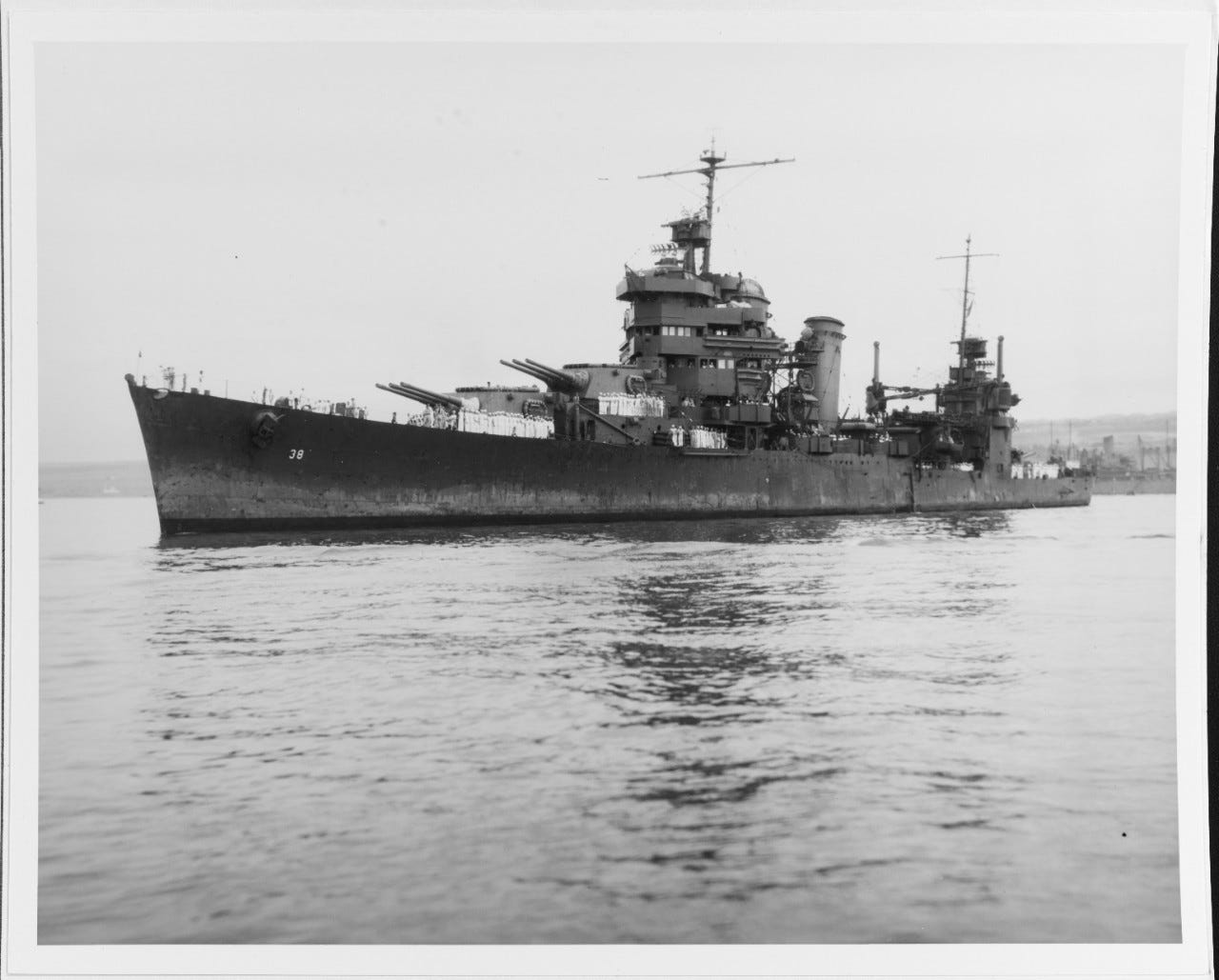Medal of Honor Monday: Heroes at Guadalcanal
Americans were outnumbered, but attacked the Japanese head-on.
On this day in 1942, two heroes receive the Medal of Honor. Rear Admirals Daniel Callaghan and Norman Scott might have been the first to receive Medals for their actions at the first Naval Battle of Guadalcanal, but they weren’t the last.
In the months that followed, three other sailors also received Medals for their actions during that battle.
The conflict in Guadalcanal was difficult, to say the least. In August 1942, Marines seized a partially constructed Japanese airfield on the island, renaming it Henderson Field. For months afterwards, the two sides struggled for control of the area in what the National World War II Museum calls a “ferocious struggle marked by seven major naval battles, numerous clashes ashore, and almost continuous air combat.”
One of these naval battles came on the night of November 12-13. American reconnaissance aircraft had spotted an advancing Imperial Japanese Navy force, and Rear Admiral Callaghan’s Task Group 67.4 was sent to intercept it.
Callaghan was outnumbered. He had five cruisers and eight destroyers, compared to the Japanese force of two battleships, one cruiser, and eleven destroyers. Nevertheless, he attacked the Japanese head-on.
“Discarding orthodox battle strategy,” The Medal of Honor: A History of Service Above and Beyond describes, “he ran the gauntlet between the two Japanese battleships and their cover of smaller ships, exposing his column to fire from both sides. The opposing forces sailed into chaos. US ships zigged and zagged to within yards of the enemy, sometimes nearly colliding with each other or with enemy ships as they took evasive maneuvers.”
The fighting at close quarters was brutal, and the American ships were taking many hits. Callaghan, aboard the flagship USS San Francisco, and his second-in-command, Scott, aboard the light cruiser USS Atlanta, were killed. Both men were posthumously awarded the Medal for their fearless leadership.
By then, San Francisco was struggling, and she was in pretty bad shape. The heroic efforts of then-Lt. Cmdr. Bruce McCandless, then-Lt. Cmdr. Herbert E. Schonland, and BM1 Reinhardt J. Keppler would save her, despite the loss of Callaghan.
McCandless leapt into action when Callaghan went down, assuming command and boldly maintaining the same daring plan of attack that had gotten the Rear Admiral killed. In the meantime, Schonland was battling rising flood waters aboard San Francisco. Again and again, he waded into flooded compartments, working to drain off water and restore the integrity of the ship. “In water waist deep,” his Medal citation describes, “he carried on his efforts in darkness illuminated only by hand lanterns . . . .”
Finally, a wounded Keppler was spearheading firefighting efforts aboard San Francisco. He singlehandedly hosed down the starboard side of the ship’s hangar, getting a raging inferno under control. “Later, although mortally wounded,” his Medal citation concludes, “he labored valiantly in the midst of bursting shells, persistently directing firefighting operations and administering to wounded personnel until he finally collapsed from loss of blood.”
The efforts of these men were enough. San Francisco was saved, and the Japanese withdrew. The victory, combined with another a few nights later, was the beginning of the end for the Japanese Navy in Guadalcanal.
“To Scott, Callaghan and their men goes our greatest homage,” then-Major General Alexander Vandegrift concluded. “With magnificent courage against seemingly hopeless odds, they drove back the first hostile stroke and made success possible.”
Sources can always be found on my website, here.





What a tremendous assault against far superior force. Knowing the Marines on Guadalcanal had no other hope, the task force made a sacrificial direct attack. The MOH was aptly earned that day. May God bless them all and may they rest in peace.
Giving the full measure of their lives, they led their crews to success. RIP, gentlemen, your honorable actions are not forgotten.